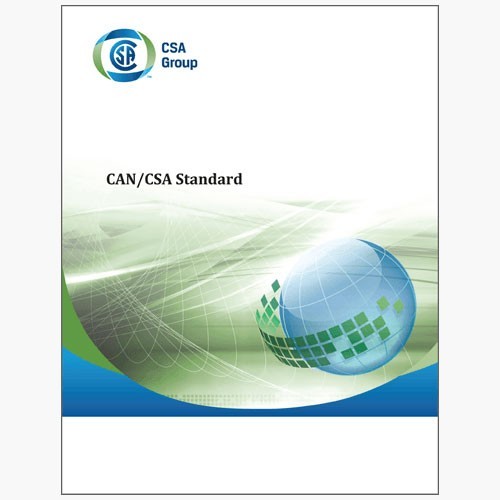TOLL FREE · 1-888-361-0003 Our Customer Support is ready to help!

Formats Available:
Online,
Print
Product Overview
CAN/CSA-ISO/IEC 18000-2-10 (R2015)
CSA Group Information technology - Radio frequency identification for item management - Part 2: Parameters for air interface communications below 135 kHz (Adopted ISO/IEC 18000-2:2009, second edition, 2009-10-01)
Total
As low as
$220.00
More About This Product
Description
Preface Standards development within the Information Technology sector is harmonized with international standards development. Through the CSA Technical Committee on Information Technology (TCIT), Canadians serve as the Canadian Advisory Committee (CAC) on ISO/IEC Joint Technical Committee 1 on Information Technology (ISO/IEC JTC1) for the Standards Council of Canada (SCC), the ISO member body for Canada and sponsor of the Canadian National Committee of the IEC. Also, as a member of the International Telecommunication Union (ITU), Canada participates in the International Telegraph and Telephone Consultative Committee (ITU-T). This Standard supersedes CAN/CSA-ISO/IEC 18000-2-05 (adoption of ISO/IEC 18000-2:2004, first editioin, 2004-09-15). At the time of publication, ISO/IEC 18000-2:2009 is available from ISO and IEC in English only. CSA will publish the French version when it becomes available from ISO and IEC. Scope This part of ISO/IEC 18000 defines the air interface for radio frequency identification (RFID) devices operating below 135 kHz. The purpose of this part of ISO/IEC 18000 is to provide a common technical specification for RFID devices that can be used by ISO committees developing RFID application standards. This part of ISO/IEC 18000 is intended to allow for compatibility and to encourage inter-operability of products in the international marketplace. This part of ISO/IEC 18000 defines the physical layer used for communication between the interrogator and the tag and further defines the communications protocol used in the air interface. Two types of tag are defined by this part of ISO/IEC 18000: Type A and Type B, which differ only by their physical layer. Both support the same inventory (anti-collision) and protocol. Type A tags are permanently powered by the interrogator, including during the tag-to-interrogator transmission, and operate at 125 kHz. Type B tags are powered by the interrogator, except during the tag-to-interrogator transmission, and operate at 125 kHz or 134,2 kHz.
Preface Standards development within the Information Technology sector is harmonized with international standards development. Through the CSA Technical Committee on Information Technology (TCIT), Canadians serve as the Canadian Advisory Committee (CAC) on ISO/IEC Joint Technical Committee 1 on Information Technology (ISO/IEC JTC1) for the Standards Council of Canada (SCC), the ISO member body for Canada and sponsor of the Canadian National Committee of the IEC. Also, as a member of the International Telecommunication Union (ITU), Canada participates in the International Telegraph and Telephone Consultative Committee (ITU-T). This Standard supersedes CAN/CSA-ISO/IEC 18000-2-05 (adoption of ISO/IEC 18000-2:2004, first editioin, 2004-09-15). At the time of publication, ISO/IEC 18000-2:2009 is available from ISO and IEC in English only. CSA will publish the French version when it becomes available from ISO and IEC. Scope This part of ISO/IEC 18000 defines the air interface for radio frequency identification (RFID) devices operating below 135 kHz. The purpose of this part of ISO/IEC 18000 is to provide a common technical specification for RFID devices that can be used by ISO committees developing RFID application standards. This part of ISO/IEC 18000 is intended to allow for compatibility and to encourage inter-operability of products in the international marketplace. This part of ISO/IEC 18000 defines the physical layer used for communication between the interrogator and the tag and further defines the communications protocol used in the air interface. Two types of tag are defined by this part of ISO/IEC 18000: Type A and Type B, which differ only by their physical layer. Both support the same inventory (anti-collision) and protocol. Type A tags are permanently powered by the interrogator, including during the tag-to-interrogator transmission, and operate at 125 kHz. Type B tags are powered by the interrogator, except during the tag-to-interrogator transmission, and operate at 125 kHz or 134,2 kHz.
